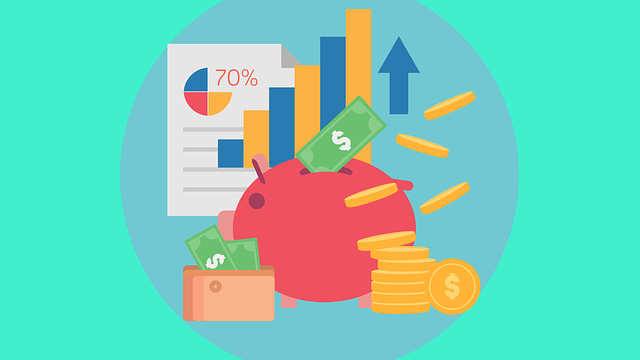A Fixed Deposit (FD) account is an investment vehicle offered by all private and public banks. Apart from the banks, some of the non-banking financial companies also let people invest in fixed deposit accounts. An FD account reaps more interest rates than any saving bank account, making it a better money-saving option for people. At the time when people are interested in stocks and funds, the FD is still leading the market as a money-saving instrument. According to a SEBI survey, 95% of Indians like to invest in FD accounts whereas less than 10% of people find it comfortable to invest in stocks and mutual funds.
Why go for an FD account?
Unlike stocks and other fund schemes, the FD offers assured returns to meet short-term as well as long-term life goals. It is one of the preferred ways of investing where you invest a lump sum amount for a fixed period. The invested money gets locked for the decided duration and earns an interest throughout that time.
One of the major reasons why FD is a favorable investment is that it remains unaffected by the market ups and downs once the rate of interest is fixed during investment. The rate of interest depends on the type of lenders such as a private bank, public bank, and NBFCs.
The tenure of an amount to be invested is flexible; you can choose it at your convenience. Fixed deposit brings multiple benefits including loans against FD at low-interest rates. It also provides you an option to get the return or lump sum at the time of maturity. One can compare some top banks in India such as Axis bank FD rates with other banks online.
Minors can contribute to FDs as:
- below 18 years but can read and write
- who can’t read and write potentially
For the latter category, minors have guardians on their side to start term deposits in their name. Depending on the investment, there are applicable terms and conditions for minors to open a fixed deposit account.
Rate of Interest on an FD Account
All the banks and non-banking financial companies offer different rates of interest on fixed deposit accounts. It is important to invest your hard-earned money after knowing the interest rate provided by the bank. Comparing rates of interest of different banks helps in making the investment decision smoother.
If an investor of fixed deposits wishes to get a loan approval then fixed deposits can be used as collateral to seek 95% of the loan amount. Using the investment funds, one can enjoy the loan facilities by banks based on varying terms and conditions of the lenders.
Irrespective of the type of investment, usually, senior citizens get a higher interest rate than individuals below 60 years. If banks offer 7% interest on FDs, senior citizens are entitled to reap returns at more than 7%.
Fixed Deposits: Incredible Benefits
Safer Investment Instrument: Fixed deposit offers a safe investing environment, unlike other investment vehicles. While investing in fixed deposits, you get assured of receiving a fixed amount after completion of FD tenure. As the FD is not market-driven, it eliminates the risk of losing money during the fall of the market. Due to these facts, it is a favourable investment option for risk-averse people.
Reliable Option for Savings: No matter how long you keep the money in a savings account, the fixed deposit account always gives you more returns. As the FD account requires the investor to lock the money for a fixed time, the investor can not withdraw the amount before that period. Premature withdrawal of the amount leads to penalties.
For example, if a person invests 10,00000 for 5 years at the interest rate of 5% but withdraws before the maturity time, he/she will get the interest at the interest rate applicable at that time. Loss of the higher interest is the penalty you bear for premature withdrawal.
Tax Benefits: Tax Saving FD accounts enjoy tax benefits under Sec. 80C of Income Tax Act, 1961. These tax-saving FD accounts come under the tax-exempt category. Although interest earned on an FD account is liable for taxes, one can claim a tax deduction up to Rs. 1.5 lakhs for the invested amount.
Liquidity: The liquidity of any asset is measured by how easily it can be converted into cash. As FDs are not prone to market risks, they can be withdrawn easily however penalties will be put on for early withdrawal. FDs are a savior at the time of cash crunches.
In Fixed Deposits, the investors are free from understanding the market conditions and monitoring for money withdrawal before time.
Flexibility: The tenure of holding money in fixed deposit accounts ranges from 7 days to 10 years, making it suitable for all classes of people. You can set short-term or long-term goals and invest in an FD account accordingly. For example, if you are planning for the admission of your child to a sports institute after 5 years, you can start investing in tax-saving FD to fulfill the goals.
To invest in FDs, one can start investing with Rs. 5000 with no capping for the long term. One of the inherent advantages that FDs offer is that the investors know the maturity amount at the beginning of the investment.
Periodic Interest Payouts: A fixed deposit account helps you to gain periodic interest payouts. The periodic payout helps in planning the expenses according to personal needs. They help in spending a joyful life post-retirement years. You can opt for a non-cumulative FD by selecting monthly, quarterly or yearly payouts if you are looking for regular interest payouts.
Conclusion
Unlike a savings account, a fixed deposit account encourages one to invest wisely thereby limiting unnecessary expenses. With a long-term FD, you can save more as compared to a savings account. To ensure financial stability in the future, it is a smart step to invest in fixed deposits. It helps you achieve financial goals with no monetary losses.


